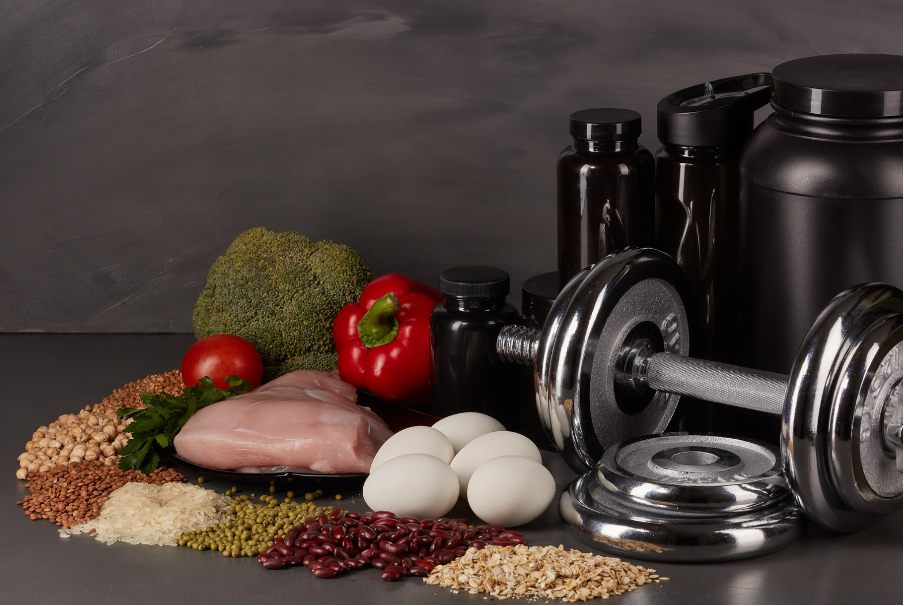We talk a lot about exercise. Considering we’re exercise physiologists, you would hope so! We are aware though, that exercise is just one (very important) piece of the wellness puzzle. Other pieces include sleep, stress management, connection – and of course, nutrition! They all go hand in hand (in hand in hand…).
Due to the importance of good nutrition for disease prevention, the government puts a lot of research into what we need to eat for optimal health. When it comes to nutrition, everyone should be aiming to meet the general guidelines outlined for good health. Those who exercise regularly need to go a little bit deeper though, to make sure that they are replenishing their body’s stores effectively.
We have said before that exercise is a stressor. A healthy one, but a stressor nonetheless! Beyond simply meeting the general guidelines, there are some extra things we can do to support our hard-working bodies to recover after a good training session. It starts with having a basic understanding of nutrition, and why good nutrition is important for training. Which is what we are here to help with!
The roles of the macronutrients

The name says it all. “Macro” nutrients are those nutrients our body needs in large quantities. You will have heard of them before – carbohydrates, fats and proteins. But, do you know why each is important to consume in relation to your exercise program?
Carbohydrates consist of sugars, starches and fibre. Recommendations state that a whopping 45-65% of our daily diet should be carbs. This is because, despite having received (wrongly) bad press in recent years – carbohydrates are our bodies preferred source of energy. Especially for those of us who partake in moderate-vigorous intensity exercise. When we start to pick up the pace, it’s carbs we need! They also have lots of other roles in digestion, optimal brain function and disease prevention, including cholesterol and blood glucose management.
Second up is fats, also known as lipids, which are the most energy-dense of the macronutrients. General guidelines recommend that 30-33% of our diet consist of fats, primarily those that are unsaturated. Fats have lots of roles in the body, but when it comes to exercise, fats provide us fuel for low-moderate intensity exercise. Some fats (omegas) also play an important role in brain and heart health! Key for supporting our training regime in the long-term.
Last but definitely not least comes protein. Unlike the other two macronutrients, all going well, our body will not use protein for energy during exercise. Protein is busy with other important functions in the body, and when it comes to exercise, it’s after the session that it has the most significance. Protein forms the building blocks for building and repairing muscle, something we all need after those muscles have been worked! When we workout, we actually cause micro-tears in our muscle fibers (don’t worry, this is normal! And the reason behind that post-workout muscle soreness). Consuming enough protein ensures that our body has all the resources it needs to repair and rebuild our muscles, making us stronger (and able to handle more) as we go!
Time to eat!
Aside from getting an ideal balance of each macronutrient, we can further enhance the effectiveness of our diet/training relationship by considering the timing of our meals and the macronutrient content of these meals.
Before training, carbohydrate intake is king! Having some carbohydrates before you head to the gym will ensure there is readily available energy to perform at moderate-high intensities. Our body does have some carbohydrate stores. Once these stores have run out though, the intensity that we are able to sustain drops. Our metabolism changes to allow us to use fat for fuel, or our body will break down protein (we don’t want that!). Some simple carbohydrates like fruit, quick oats or bread are ideal to top up energy stores prior to training, without feeling too sluggish.
After training, there are 3 goals of nutrition:
-
-
- Re-fuel: Re-stock carbohydrate stores and prevent a “crash”
- Re-hydrate: Replace any water lost during your training session to maintain fluid balance
- Recover: Consume protein to support muscle recovery and rebuilding.
-
With these goals in mind, your meal following training should ideally include both a protein and carbohydrate source. This will help with preventing a crash in energy (as if 3pm doesn’t come around hard enough as it is!) and ensure your muscles have what they need to recover and grow. A simple example of this would be eggs on toast – throw in some avocado for healthy fats and a tall glass of water – your body will be happy!
Help your body help you
Our bodies do a lot for us day-to-day, but even more so when we are exercising regularly! Eating well and fuelling our bodies appropriately for exercise means that we are able to train harder, and recover better. Exercise is a way to show love to our bodies – but our bodies need us to give them the right building blocks to turn that exercise into improved strength and fitness. Nutrition is the perfect way to support our bodies through training. Help your body to work better for you!
Author: Tessa Nielsen Editor: Yolanda van Vugt Clinical Exercise Physiologist and Content Creator at Specialised
#exercisephysiology #exerciserehab #rehabilitation #lifeinsurance #incomeprotection #ctp #workcover #mobile #mobileexercisephysiology #fatigue #mentalhealth #cancer #musculoskeletal #injury #pain #physio #physiotherapy #Sydney #Brisbane #Melbourne #Adelaide #Auckland #Waikato #BayofPlenty #Wellington #Otago #Christchurch
